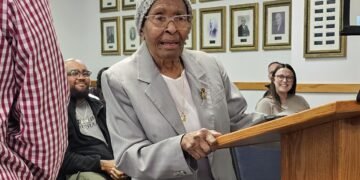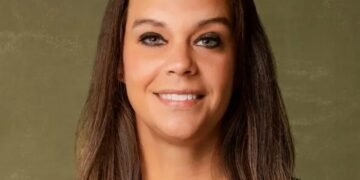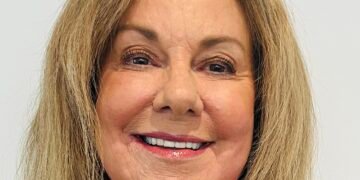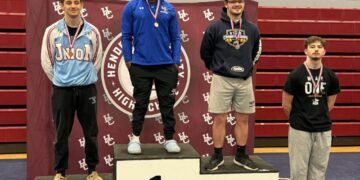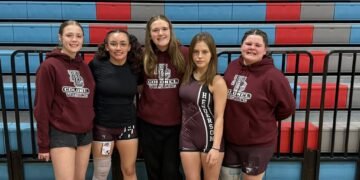Dr. Michelle Chappell said she had no idea she would be named Rotary’s “Hometown Hero” during late July’s State of the City and County ceremony.
Chappell was sitting at the table with other members of the Henderson-Henderson County Human Rights Commission and noticed two empty chairs and two table favor cookies that she thought would go untouched.
She jokingly reached for the cookies, but Rev. Charles Johnson, the executive director of the human rights commission, told her to hold off and that those cookies were for people who were “going to be here later.”
Those two chairs were for her children, Keileen Chappell and NiYa Davis, who had snuck into the ceremony and waited behind her so that the secret was not given away.
When Rotary member (and city of Henderson public information officer) Holli Blanford began to read the introduction of the winner, giving clues little by little, Chappell still didn’t know—not until the part when Blanford told of how she was in Chappell’s class at Henderson Community College.
“That’s when I started crying,” Chappell said in an interview with the Hendersonian.
Education is a good place to start when describing Chappell’s contributions to the community. She began as an instructor at the college in 2011. Now, she’s a full professor of computer and information technologies as well as the CIT program coordinator.
She’s also on the Chamber of Commerce Board, the vice-chair of education, workforce and diversity, equity and inclusion for the chamber, is a member of the human rights commission and is on the Juneteenth Celebration board.
One of Chappell’s most cherished activities, though, is the Transition to Beyond program for underrepresented minorities she started at Henderson County High School. It began in 2021 when she worked with high school seniors, helping them prepare for college—essay writing, money management, financial aid, setting goals and a host of other topics.
She said she started this program because she didn’t have the help she needed in high school. She wants to help her students avoid her own miscues.
“It’s the same stuff I wish people would have told me when I was their age,” she said.
But also, she wants to do more than provide answers. It goes deeper.
She said that asking for help in the African-American community is seen as a sign of weakness, and in the time that she meets with her Transition to Beyond students twice each month, she provides a safe space so that they can talk openly and freely, without judgment but with understanding.
She said her mentoring journey began in 2012 when a student was wandering around outside her office while looking for another colleague, who was not around. Chappell began talking to that student, calmed her down, and got her the help she needed. She said she still has a good relationship with that student, who’s now married with two children.
She said she’s proud of the lasting relationships built through her mentoring and hopes it gives people a voice and a seat at the table.
“I want them to look at me and say, ‘She did it. I can do it, too.’ ”
Chappell said Henderson is progressing with diversity issues—“it’s moving in the right direction”—and she wants to help usher in more change.
“You can sit here and complain about things all the time,” she said. “But if you don’t be about change, things are never going to change. Get involved.”

